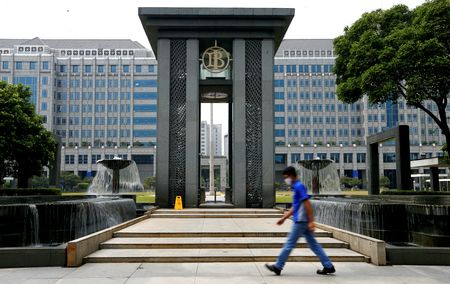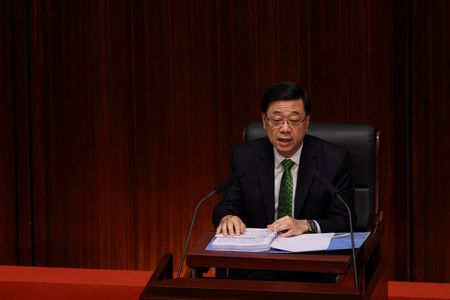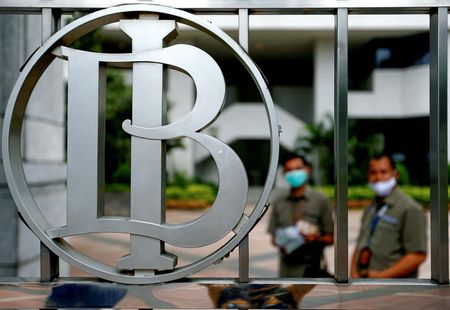JAKARTA (Reuters) -Indonesia’s central bank is focused on pushing economic growth without compromising on price stability, including the exchange rate, a senior official said on Wednesday, as the rupiah weakened again amid rising tensions between India and Pakistan.
In the current environment, the central bank will try to find the “optimal balance” between price stability and economic growth, said Juli Budi Winantya, a director in the economic and monetary policy department of Bank Indonesia.
Current economic growth was still below potential, but the central bank’s aim was to push for growth without compromising stability, he told an economic seminar when asked about the policy rate outlook.
Indonesia’s first quarter economic growth was 4.87%, the slowest in more than three years, but roughly in line with market expectations, official data showed on Monday.
“We should push economic growth further,” Juli said. “BI policy is to try to find optimal balance between maintaining stability and pushing growth.”
BI’s latest 2025 growth outlook for the largest economy in Southeast Asia was slightly below the mid-point of a 4.7% to 5.5% range.
It has cut interest rates twice since September to try and stimulate economic activity, but has paused its easing cycle to focus on keeping the rupiah stable.
The central bank said it would maintain its presence in the foreign exchange market to shore up confidence, the bank’s head of monetary management Erwin Gunawan Hutapea told reporters separately.
The rupiah has strengthened since hitting a historic low in early April, but weakened 0.55% on Wednesday to 16,535 a dollar amid rising geopolitical concerns in India and Pakistan and ahead of the conclusion of the U.S. Federal Reserve’s monetary policy review.
Erwin said foreign investors had begun buying Indonesian assets again, including during the government’s bond auction this week, which would support the rupiah, but he warned that domestic U.S. dollar needs for dividend repatriation and foreign debt payments could affect exchange rate movements in coming months.
To support growth, BI has focused its open market operations on expanding liquidity, including by gradually reducing the level of outstanding BI certificates (SRBI), Erwin said.
“We want BI’s operations to have expansionary impact, supporting growth,” he said. “As part of that, gradually we have reduced outstanding SRBI. … so far by 40 trillion rupiah since the end of 2024.”
BI’s outstanding SRBI as of April 21 was 881.86 trillion rupiah, according to central bank’s website.
(Reporting by Stefanno Sulaiman and Gayatri Suroyo;Editing by John Mair, Martin Petty and Kate Mayberry)










